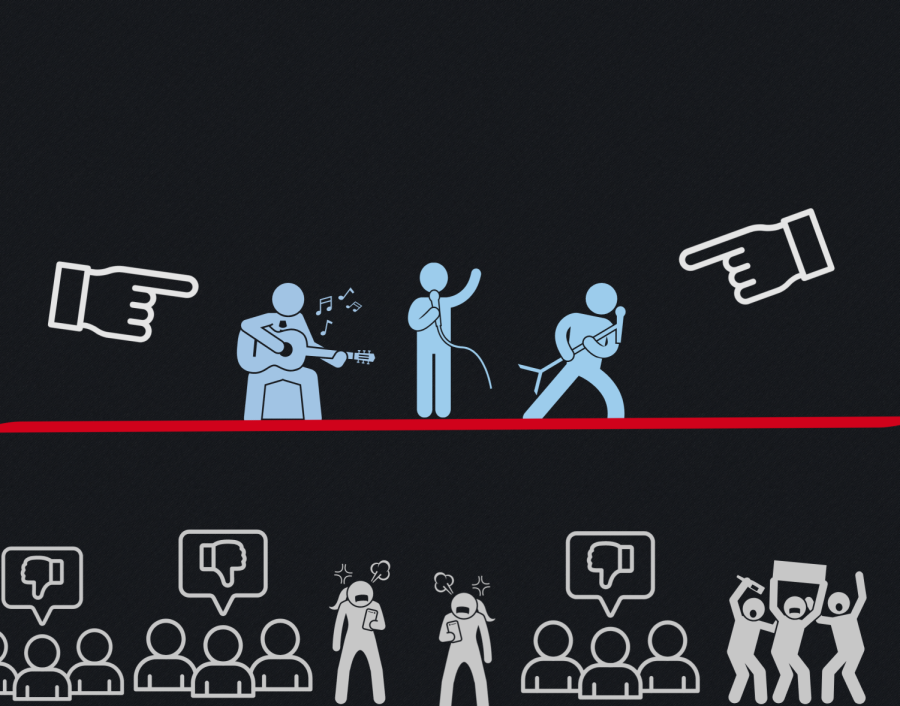Does an Artist’s Life Impact Music Taste?
Artists nowadays are seen as problematic based off of their social media presence or personal lives. Almost every fact about pop singers, song writers, and creators is published online for all to see and judge. Those personal facts are then used to criticize the content they put out.
For audiences of all kinds, it can be easy to dislike and hate on artists. According to Kaston Anderson-Carpenter, an assistant professor of psychology at Michigan State University, “In our collective mind, we set up certain (often unrealistic) expectations of how celebrities should behave […] And when they don’t meet our expectations, we tend to judge them more harshly” (Anderson-Carpenter).
Separating art from the artist means valuing the content they create without overly supporting what the artist claims to represent or vice versa.
Each individual artist has their own values and opinions on what message they want their music to portray. It then is up to their audience on what music and information they want to be listening to.
How does that come into play at Westminster?
Spirit Week could be claimed to be the only event during the year when the school plays music for a consistent amount of time. Most may know, the music that is played for the performances and the games are all passed through the WCA music guidelines. What do guidelines mean when it comes to who we are allowed to listen to and who is off limits?
Listening to music solo can be an experience where one is able to express themselves through their choice of song. An example of a person catering to their own interests could be in choosing music that makes them feel positive emotions or a spark in creativity. However, with larger crowds, the choice between music that will be appropriate for all ages, audiences, backgrounds, and scenarios narrows drastically.
Nowadays, many songs that are popular and that are on the rise are explicit to some extent. While most are not, the artist behind the music can instead be seen as inappropriate or unfitting. It can be tricky to actively separate music from its artist when an individual is trying to appeal to a larger group of people.




